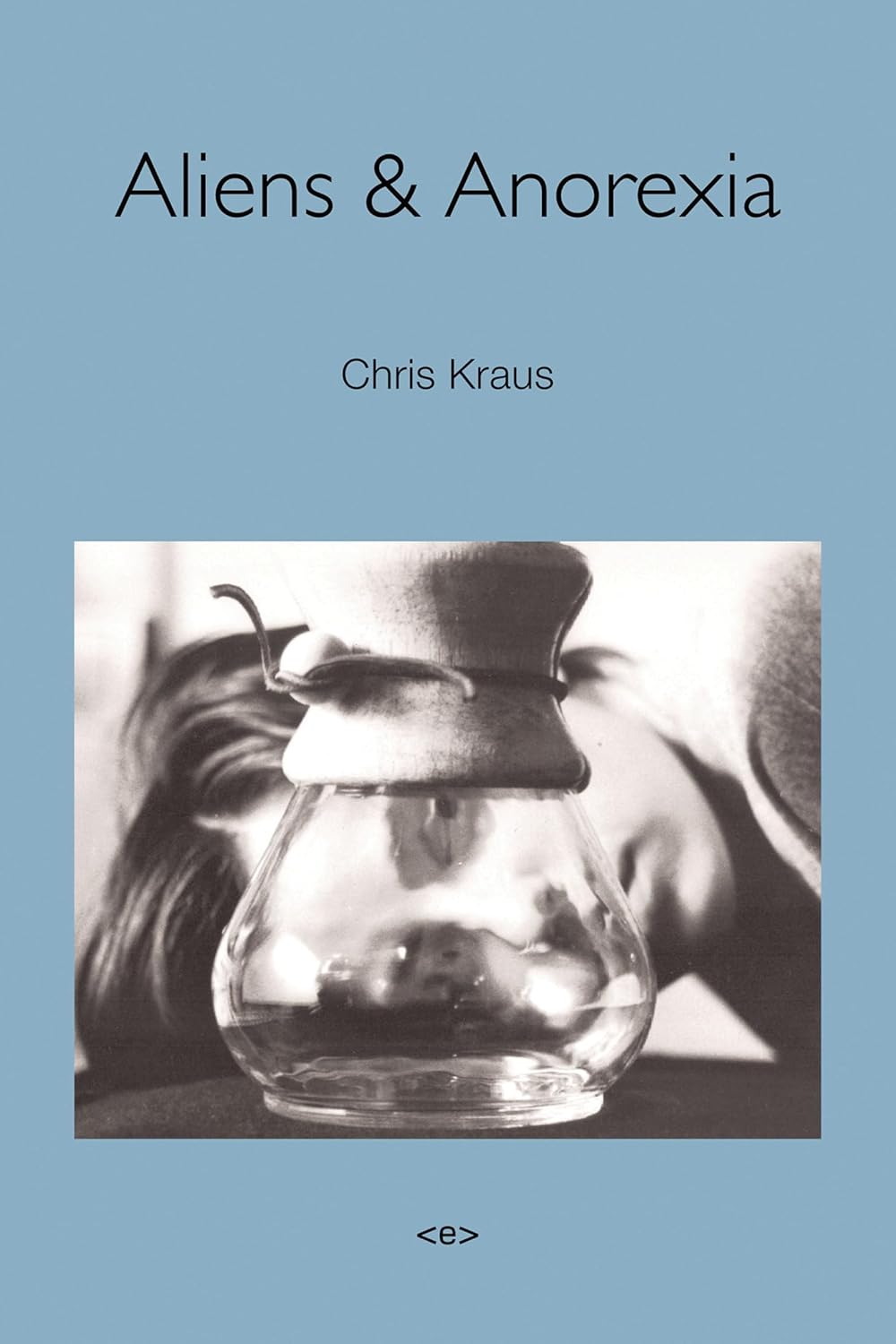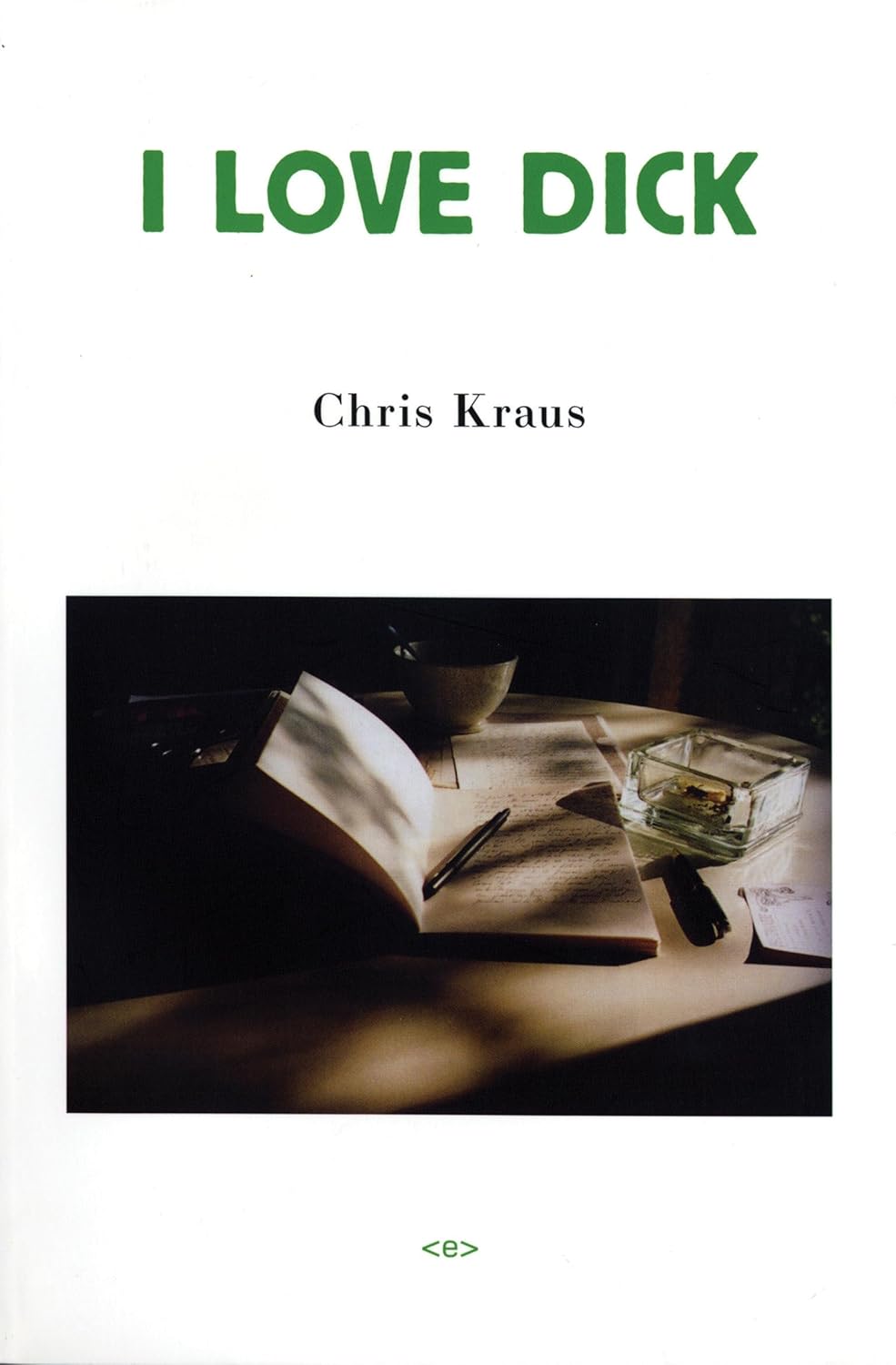Book Review: Chris Kraus' Aliens & Anorexia and I Love Dick
by Grace Grocholski
“When you’re living so intensely in your head there isn’t any difference between what you imagine and what actually takes place. Therefore, you’re both omnipotent and powerless.” —Chris Kraus
Reading Chris Kraus is a heady experience. The artist—a novelist, art critic, and filmmaker—defies categorization. With her boundary-pushing work in the late 90s, she was at the forefront of what is known today as autofiction. She doesn’t just tell stories: she interrogates herself and her motivations. Her genius is in this self- disclosure, and in synthesizing intellectual theory with emotional experience. She is stark and absolutely brutal in her depictions, both of others and of herself. Her next novel, The Four Spent the Day Together, will be released in October. Ahead of the novel’s release, two of her earlier novels, both influential in different ways, are reviewed here: Aliens & Anorexia and I Love Dick. Kraus’s female characters (often sharing a resemblance to their author) deepen our understanding of the complicated terrain of being a woman—one who thinks, feels, and desires.
Aliens & Anorexia (2000) is a sharp and fragmented book that resists genre, cutting between memoir, history, philosophy, and a sort of fever-dream narrative. The story follows Kraus’s experience trying to sell her first film, Gravity and Grace, which takes its name from a book by the philosopher and mystic, Simone Weil. Kraus explores Weil’s biography and themes of her life. Kraus empathizes with Weil and her mystical search for meaning. “Belief is a technology for softening the landscape,” she explains. “The world becomes more beautiful with God in it.” Weil notably died from complications of self-starvation, which many read as a political statement. Kraus touches on these themes, as well as the art of Ulrick Meinhof and Paul Thek.


Chris Kraus' Aliens & Anorexia (2000) and I Love Dick (2006)
At its core, the book is a raw look at the female body and intellect as sites of control and refusal. The anorexia of the title is not only a mental disorder but a metaphor for a deep-seated spiritual starvation. In a world of patriarchal consumption—of art, of ideas, of women themselves—the anorexic body becomes a protest, a radical act of negation. Kraus positions this act of self-erasure not as a passive surrender but as a dark, yet deliberate, political gesture—a refusal to be palatable, to be consumed. This is a strong feminist insight, connecting the personal agony of an eating disorder to the larger societal pressures that seek to control and define the female form. The “alien” of the title, then, is a perfect summation of the author’s persona and the female experience she describes: an outsider forever looking in.
If Aliens & Anorexia is about the act of disembodiment, I Love Dick (1997) is its mirror image, a book that insists on the desires of the body as a site of unapologetic creativity. This book is a cult classic of contemporary feminist literature, and its brilliance lies in an unexpected premise: a woman’s infatuation with a man is not trivial or embarrassing, but the very engine of artistic endeavor. The novel is a collection of letters—some sent, most unsent—from Chris Kraus (the character) to Dick (based on the cultural critic Dick Hebdige), as she rapidly becomes obsessed with him and wrestles with her feelings and their meaning. It is through this correspondence that her genius unfolds. She takes a traditionally passive, often humiliating female experience—unrequited desire or limirence—and turns it into an active, intellectual practice. The letters are a space for theory, for critique, and for a ruthless self-analysis that is both deeply personal and universally resonant. “Desire isn’t lack,” she writes. “It’s surplus energy—a claustrophobia inside your skin.”
The feminist critique embedded in I Love Dick is groundbreaking. Kraus subverts the traditional male gaze by making her desire the primary subject. She is not a woman to be looked at; she is a woman who is looking, who is thinking, and who is writing. The figure of Dick is ultimately secondary to the process of her own intellectual awakening. He is merely the catalyst, the spark that ignites a fire of introspection and creative energy. Kraus demonstrates that obsession and vulnerability are not weaknesses to be hidden, but tools for understanding oneself and the world. The book’s frankness and its refusal to follow rules of genre paved the way for the current wave of autofiction, forever changing how we think about the relationship between an author’s lived experience and her work.
When read together, Aliens & Anorexia and I Love Dick reveal a literary throughline. Both books are concerned with the impossible space a woman must navigate when her intellectual ambitions and her bodily existence collide. In Aliens & Anorexia, the body is a site of resistance; in I Love Dick, the body is the foundation of creative output. Kraus’s work reveals the power of the unsent letter, the unpublished manuscript, the fleeting thought—the life of a woman’s mind, a profound source of self-knowledge. She reminds us that the feminist project is not about neat conclusions or simplistic heroines, but about the messy, sometimes unlikable, and often chaotic reality of human experience. Kraus’s legacy is in having given voice to this chaos, turning the personal into a place of discovery.
Aliens & Anorexia
Chris Kraus
Publisher: Semiotext(e)
pp. 244. Pub.: March 2, 2000
I Love Dick
Chris Kraus
Publisher: Semiotext(e)
pp. 280. Pub.: July 14, 2006




